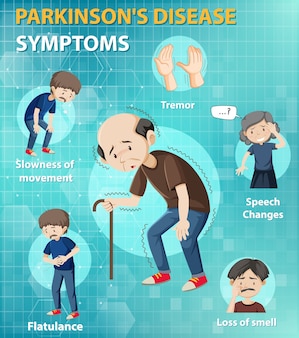
This review will look at the symptoms of the disease, its causes, and treatment options. The most common symptoms are tremor, sluggishness, and imbalance. You may also experience a low voice, hand cramps, and loss of your sense of smell. In addition, you may notice changes in your sense of smell and ability to write. You may also experience depression, anxiety, and sleep problems. If you have any of these symptoms, you should see your doctor to determine if you have Parkinson’s disease. Your doctor will be able to rule out other possible causes for your symptoms.
In order to understand the causes and symptoms, as well as how the disease affects the body and how to treat it, it is important to visit the article https://buriramunited.co.th/archives/232/สาเหตและอาการของโรคพา. People with Parkinson’s disease may need help with daily activities such as walking, writing, and swallowing. It can also lead to the person being bedridden and needing care. Fortunately, the most common treatment options are available in the form of physical therapy and diet. Fortunately, there are many types of treatment.
Most people with Parkinson’s disease are treated with medication. These medications are designed to stimulate the substantia nigra to produce more dopamine while inhibiting acetylcholine production. Although there are no cures for Parkinson’s, these drugs do help patients maintain some quality of life. Some patients experience motor fluctuations, where they move more easily and take smaller steps than others. Other symptoms include unsteady gait, dragging feet, stooped posture, and frozen feet.
While there are several treatments for Parkinson’s disease, these medications have been proven to be ineffective in many patients. Often, these medications may work during "on" periods, but not during "off" periods. This happens when the medication wears off, or just before the next dose. It may be necessary to change your medications or undergo surgery to manage the symptoms. Some patients may also require physical therapy. These surgeries can be a great way to manage the symptoms of the disease.
This overview covers the major treatments for motor and psychological symptoms of the disease. In addition, it includes information about medications for mental health. The most common treatments for the disease include levodopa, dopamine agonists, and catecholamine oxidase (MAO) inhibitors. These treatments may also help with depression. They also address the symptoms that a person experiences in everyday life. In a Parkinson’s review, Dr. Gilbert explains the various medications and the reasons for their use.
Treatment for the disease varies from patient to patient. The most common treatments for motor symptoms include dopamine agonists and monoamine oxidase B inhibitors. For people with Parkinson’s disease, these medications can be very helpful in controlling the condition and even treating depression. They are the mainstay of treatment for the disorder. However, they do not cure the disease, but they can help improve their lives. If you have any of these symptoms, it is crucial to consult your doctor right away.
Treatment for Parkinson’s disease depends on the type of symptoms. In some cases, symptoms will be mild or non-existent. In other cases, it may take years to develop. The symptoms of the disease are a combination of physical, emotional, and mental disorders. During the first stage, the symptoms may not be obvious. They may include sensitivity to pain and pressure. Depending on the severity of your condition, you may need a surgical treatment.
Most medications for Parkinson’s disease are taken orally. The mainstay drugs are dopamine agonists, levodopa, and ropinirole. Other treatments include dietary changes and lifestyle modifications. There is no cure for Parkinson’s disease, but treatment can help patients live a more active and normal life. Most of the time, medications are the primary therapy for patients. During this phase, they may not have any effect.
If you have this disease, your movement will become slow. You may have difficulty walking or standing. You might experience difficulty controlling your movements. You may also have a reduced ability to speak and swallow. Your face will look mask-like. You might have trouble speaking or laughing. And you may feel depressed. It’s not uncommon to develop dementia. The symptoms of the disease can be difficult to understand. You need to have a medical professional examine your symptoms to decide which treatment is best for you.
